| Caín Barán Quievac is the principal of Patzilin Ab’aj Primary School. As an advocate for children’s health and hygiene in a community where running water is scarce, he has a difficult job. During the course of Pueblo a Pueblo’s two-year partnership with Patzilin Ab’aj, Caín has worked alongside our Water, Sanitation, and Hygiene (WASH) team to carry out a number of infrastructure improvements. They most recent of these was the installation of a rainwater collection system that brings water to students when other sources fail them. |
| Pablo Ignacio Eulogio de Sancha is the coordinator of WASH projects at Pueblo a Pueblo and a firm believer in the power of rainwater collection. While diverting rainwater is a common enough practice in the Lake Atitlán region, he says, most residents do it as a defensive measure, to prevent flooding, and they do not take advantage of the water they collect. A system intentionally designed to capture rainwater for use in a home or school, on the other hand, can meet a meaningful portion of a community’s water needs. Given local rainfall averages here on Lake Atitlán, an effective system can collect up to 240 liters of rainwater in a single day! |
 Wire mesh stops leaves from entering the water tank
Wire mesh stops leaves from entering the water tank In April, Pablo and his team went to work. First, they installed a new water collection tank where it would be most useful—right between the bathrooms and the school kitchen. They then installed new tubing to connect the gutter of a large roof section to the tank. Finally, they placed wire mesh over the gutter to keep out leaves and other organic debris.
What's next for Patzilin Ab'aj
After contributing some key material resources and technical expertise, Pablo and his team will be stepping back into the role of strategic support during the upcoming year. Now, with water flowing through the pipes of Patzilin Ab’aj, Caín is ready to lead his school through the next step: “Now my students want to use the bathrooms, they’re using the new sinks to wash their hands all by themselves—bit by bit we’re implementing good hygienic habits.”
The new rainwater collection system has been a relief to Caín because it has allowed him to retire a school policy that required students to carry water with them from home each day. “Before these improvements, students often had to make trips home for water, which was dangerous for them,” he says. Although this policy was a choice Caín felt compelled to make in the interest of his students’ health, he is glad that the new water collection system has relieved his students and their families of this heavy burden.
School hygiene isn’t the only way rainwater will contribute to his students’ health. Patzilin Ab’aj recently started an organic garden in collaboration with Pueblo a Pueblo’s School Health and Nutrition program. The garden will produce vegetables that students can take home to their families, adding nutritional value to a diet that can become sparse during the months when family income from the once-yearly coffee harvest runs out. Now that Patzilin Ab’aj is collecting rainwater, students can water their vegetables even on dry days—and look forward to a nutritious harvest.
“It is a child’s right to exist in a healthy environment, to keep himself or herself clean, to feel good,” says Caín. With rainwater flowing through their school’s pipes, Caín and his school are one step closer to a healthier Patzilin Ab’aj!

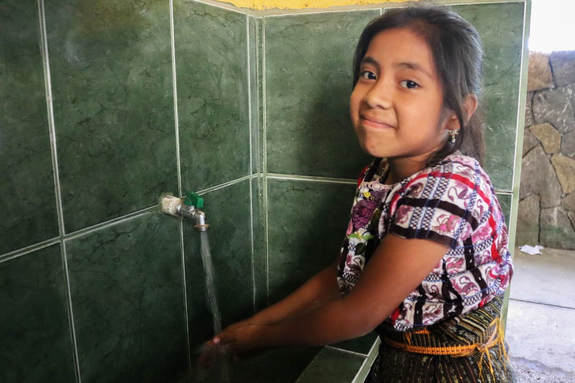
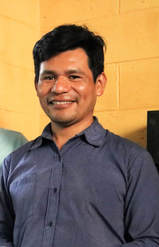
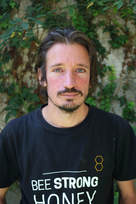
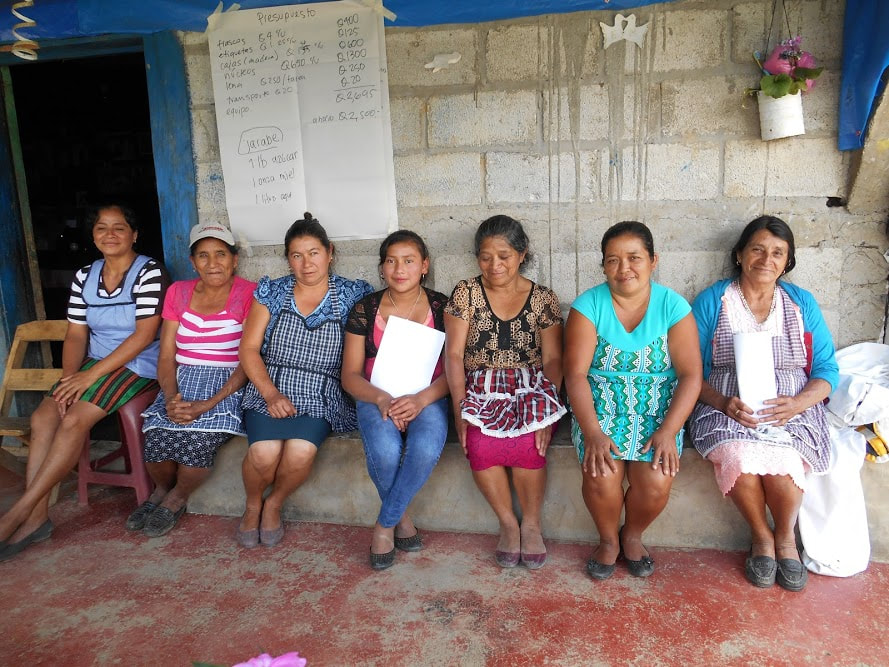
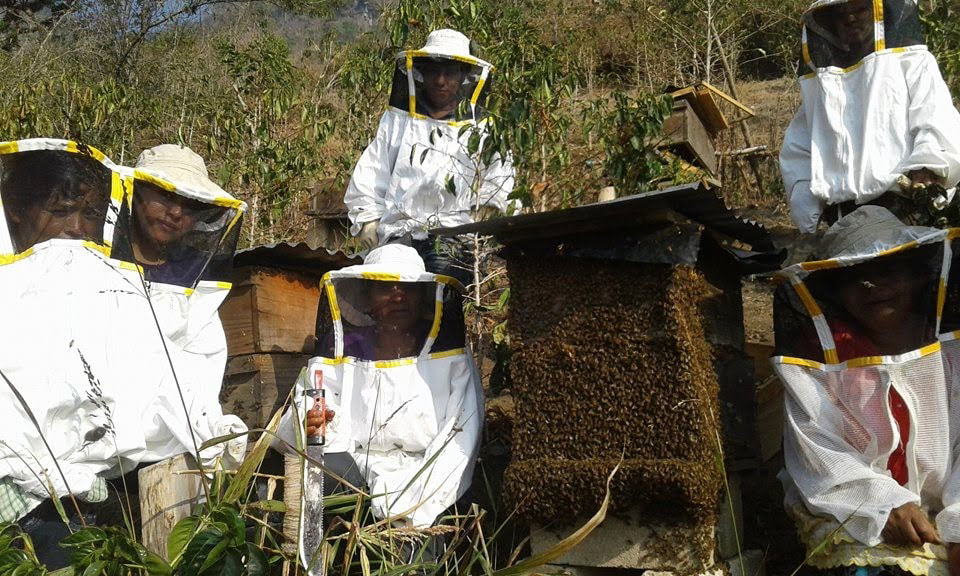
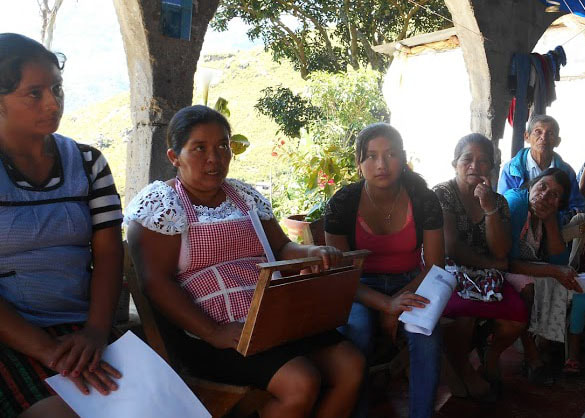
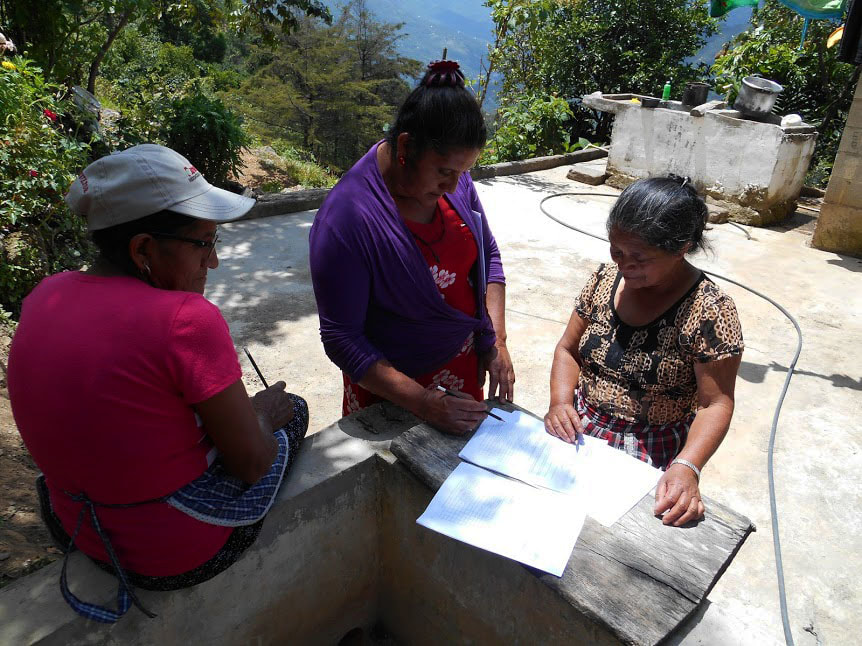
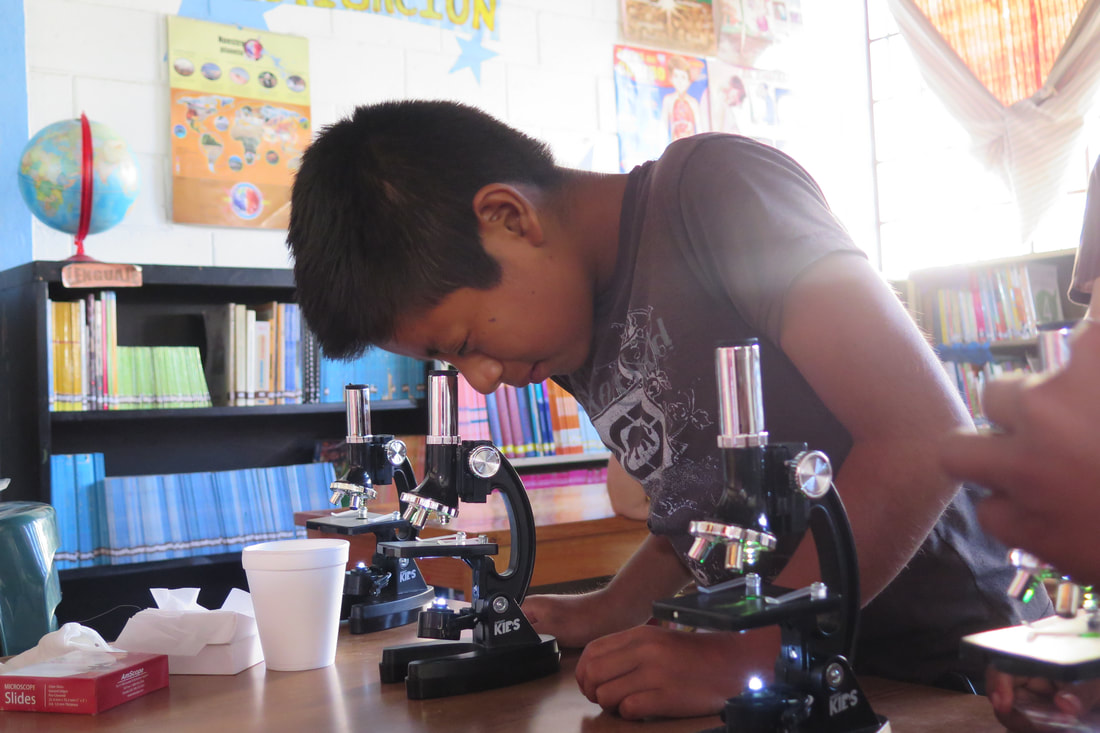
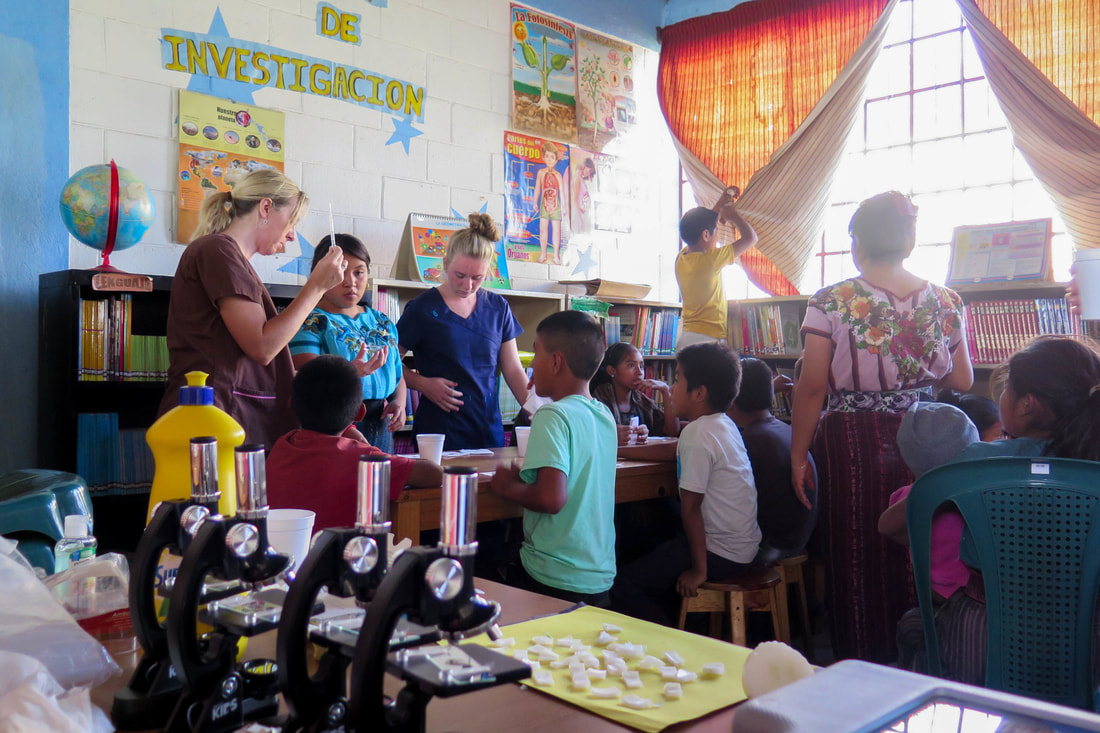
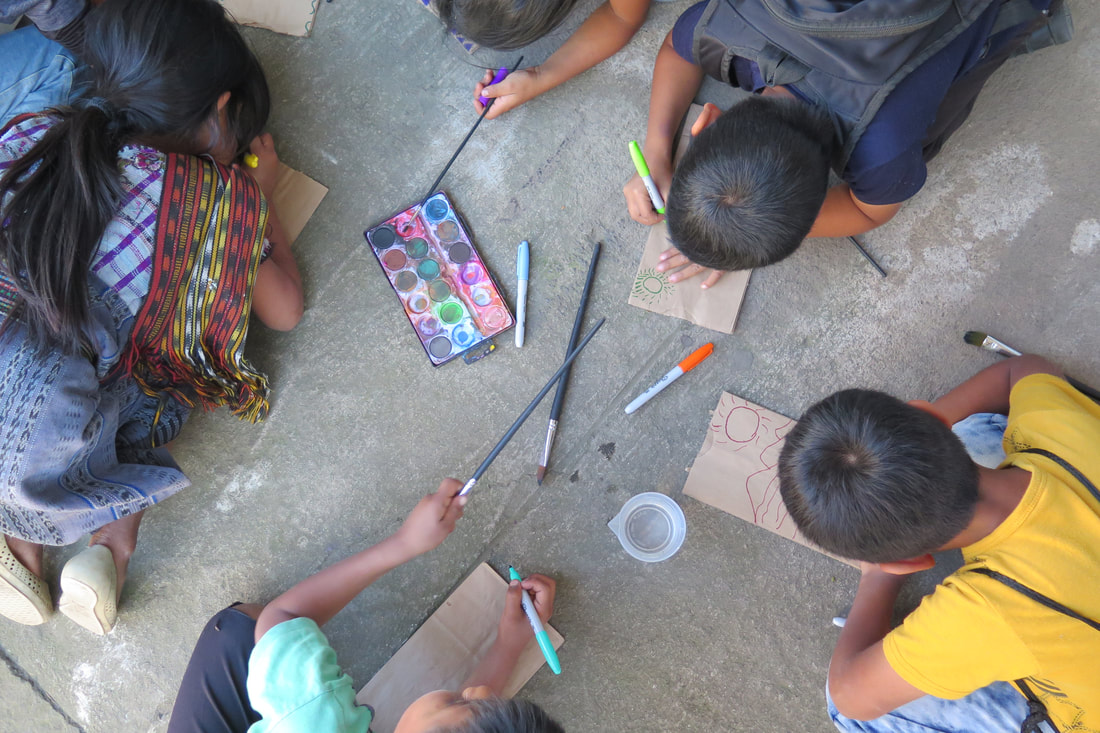
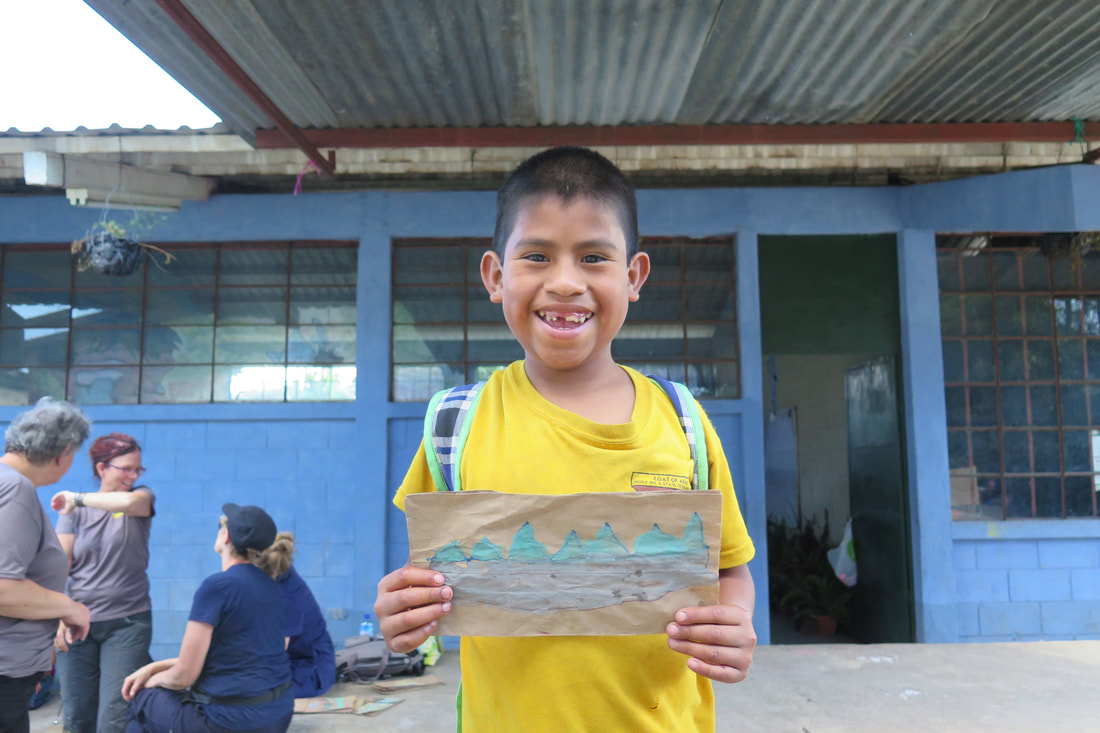
 RSS Feed
RSS Feed